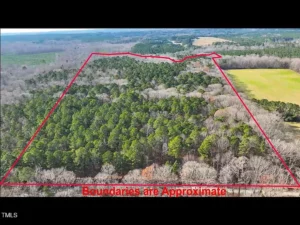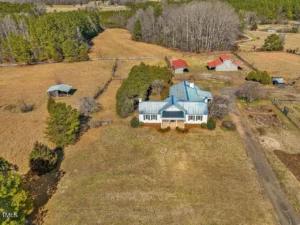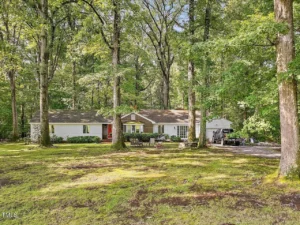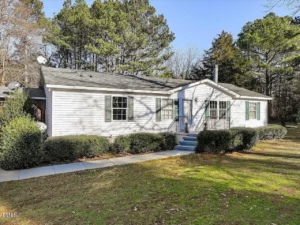Squatter’s Rights do not really exist in North Carolina. You can not take possession of a property by camping out on it for a few years. In North Carolina we have “Adverse Possession”. This generally applies when a building has been slightly over a border for at least 20 years and both parties knew about it.
In this video, Eric Andrews discusses adverse possession:
According to N.C. Gen. Stat. § 1-40,
Twenty years adverse possession.
No action for the recovery or possession of real property, or the issues and profits thereof, shall be maintained when the person in possession thereof, or defendant in the action, or those under whom he claims, has possessed the property under known and visible lines and boundaries adversely to all other persons for 20 years; and such possession so held gives a title in fee to the possessor, in such property, against all persons not under disability. (C.C.P., s. 23; Code, s. 144; Rev., s. 384; C.S., s. 430.)
Video Transcript:
I don’t know why this is such a hot topic. Everybody thinks that they can go build a house on somebody’s farm and live there and then they’re going to own that property due to adverse possession. Some people call it squatters rights or whatnot. But if adverse possession, the intent of adverse possession is that if you openly and notoriously, make some claim to a portion of property and no one disputes that claim, that after a certain amount of years, you can claim adverse possession.
And really what that’s meant for is like if you had an outbuilding that was just a little bit on someone else’s property and it’s there for 35 years, the neighbors can’t say “You got to move that outbuilding.” It’s just, by adverse possession because it was open and notorious, you do seize that little sliver property that’s underneath the outbuilding. But it’s open and notorious.
So, if you had a thousand acres and on the back side of a thousand acres, somebody put like a little tiny camper and they were hidden behind a tree and everything and they’re like, they’d been there for 30 or 40 years. Could they claim adverse possession? I mean, maybe, but it wasn’t open and notorious.
Then what destroys adverse possession is if you build a fence on my property and I discover it after a couple years, I’m putting in a swimming pool and I discover that your fence is over my property and I write you a letter and I say, “Hey, man. Your fence is on my property. I’m not going to make you move it but if it ever falls down, you can’t replace it. I know about it. I’m not giving you adverse possession, but I know about it.” So acknowledgement of it can destroy adverse possession because if we know about it, and you know about it, and we give some kind of rules or whatever.
So, it’s not as clear cut as everybody thinks. They’re just like everybody thinks that they’re going to get something for nothing and I mean, it’s complicated and it’s not. I mean, the courts don’t look at it and reward any kind of sneaky behavior like that. It’s meant to clear things up. The provision is to make things smooth or whatever. It’s like, if I thought this was my property line and you thought this was your property line, and that’s how we lived our lives for a long time, the courts will go, “You know what? You thought this was yours.” They might intervene and say, “Okay, by adverse possession, you have that right there.”
The other thing too, is you can obtain an easement by adverse possession. So, if my driveway barely goes over the corner of your property and I’m doing that for 20 years and everything and you never had a complaint about it. Then a long time later, you and I get in a fight and you’re like, “You know what? I’m going to make you move your driveway. Da, da, da.” You’re probably not going to be able to make me move my driveway. So, it’s not as clean cut as everybody thinks it is.





